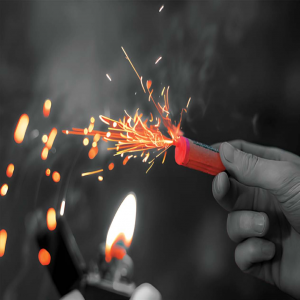
 Fr. Gaurav Nair
Fr. Gaurav Nair

There was a time when festivals lit up our hearts as much as they did our streets. These moments were meant to transcend our differences, knitting us closer in a shared experience of joy and reverence. Yet today, as the lights of our festivals shine dimmer, shadows of hatred grow ever darker. Festivals were once the bedrock of communal harmony and are now weaponised to spread division and animosity.
The metamorphosis of festivals into vehicles of hate is not a sudden phenomenon but a carefully engineered process designed to deepen schisms. Once cherished as spaces of inclusivity, festivals have become battlegrounds where the flames of intolerance are fanned. Take, for instance, the increasing communalisation of Ganesh Chaturthi in Maharashtra. Once a vibrant celebration of unity employed by Bal Gangadhar Tilak to galvanise Brahmins and non-Brahmins against colonial rule, it has now been hijacked by sectarian forces.
Similarly, the vibrant celebration of Holi, which once epitomised the spirit of spring and renewal, has been marred by bigotry. Under the cloak of coloured powders, communal slogans have been chanted, and violence has erupted in mixed neighbourhoods. In 2019, parts of Uttar Pradesh saw incidents where Holi processions turned violent, with provocative music and slogans leading to clashes.
Diwali, the festival of lights, symbolising the triumph of good over evil, is increasingly being politicised. During the 2021 Diwali celebrations, social media was awash with vitriolic posts targeting anyone who advocated for a quieter, eco-friendly festival. A simple call for responsible celebration was twisted into an attack on Hindu traditions, with incendiary hashtags stoking the fires of communalism. It was no longer a matter of environmental responsibility but a litmus test of religious and political allegiance.
Scholars and sociologists have noted that the perversion of festivals into mechanisms of hate is not merely a reflection of societal decay but a deliberate strategy employed by divisive forces. What we are witnessing is not just the communalisation of festivals but the normalisation of hate. The state's tacit approval—or outright encouragement—of these activities is a dangerous precedent. Whether it is the selective enforcement of laws during religious festivals or the political patronage extended to groups that disrupt communal harmony, there is a clear message being sent: hate, if wrapped in the garb of religion, is permissible.
This normalisation has dire implications for the country, especially since we have a multitude of races and beliefs. Festivals are meant to be a time of healing, a pause from the mundane where communities come together in shared joy. When these moments are tainted with hate, we are not just losing our festivals; we are losing our humanity.
In the words of the late Father Gustavo Gutiérrez, the father of Liberation Theology, true faith must manifest in acts of solidarity with the marginalised. The same principle applies to our festivals. If our celebrations are not inclusive, if they do not embody the spirit of togetherness, then they are nothing but hollow rituals devoid of meaning.
The true spirit of our festivals lies in the light they bring to our hearts, not in the shadows they cast over our neighbours. As we stand on the brink of a future where darkness threatens to engulf our festivals, let us choose to light the way with love, not hate.